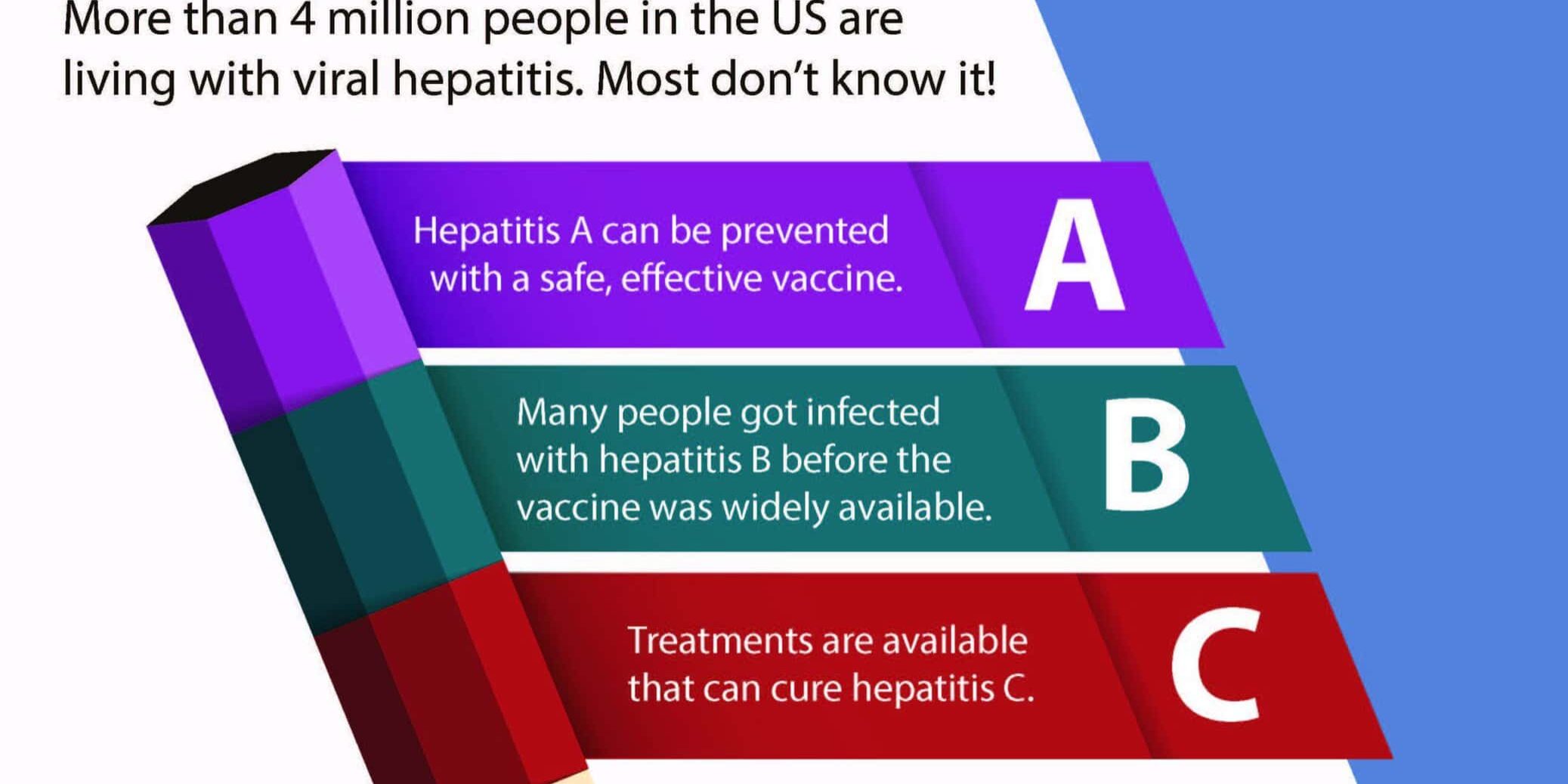
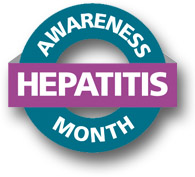
Hepatitis Awareness Month, held each May in the US, is a month-long observance designed to raise awareness of viral hepatitis prevention, diagnosis, and treatment and to encourage at-risk populations to get tested and ensure they are up-to-date with recommended vaccines.
Hepatitis is an inflammation of the liver most often caused by a virus. In the US, the most common types of viral hepatitis are hepatitis A, B, and C. While each can produce similar symptoms, each hepatitis virus affects the liver differently, has different routes of transmission, and typically affects different populations. Fortunately, effective vaccines are cavailable to help prevent hepatitis A and hepatitis B.
Millions are currently living with viral hepatitis but many do not know they are infected, as individuals can live with the disease for decades without having symptoms. If symptoms do occur, they may include: jaundice (yellowing of the skin and whites of the eyes), fever, loss of appetite, fatigue, dark urine, joint pain, abdominal pain, diarrhea, nausea, and vomiting. Very rarely, viral hepatitis can cause liver failure and death. For all types of viral hepatitis, symptoms are often less common in children than in adults.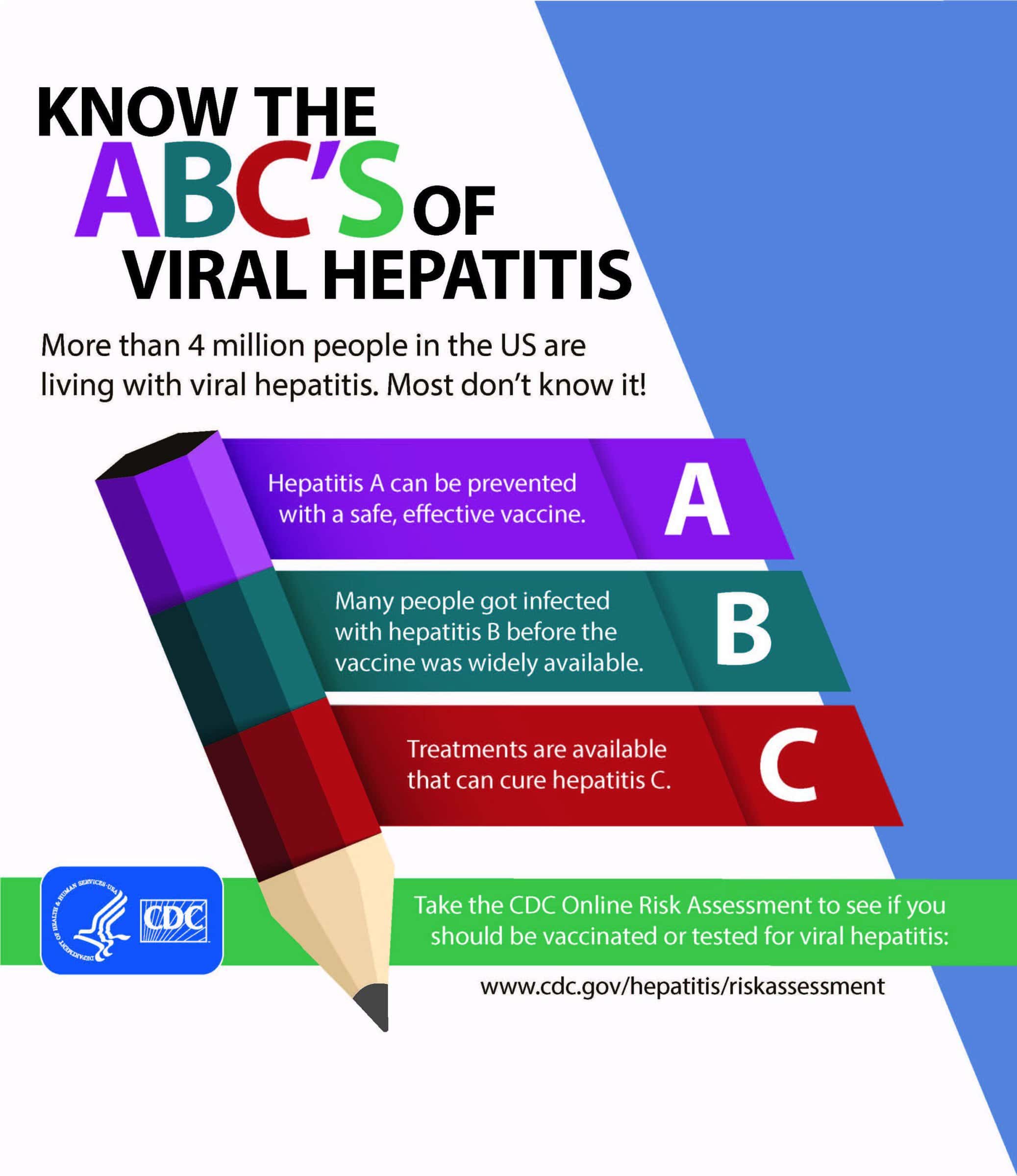
Hepatitis A is a highly contagious liver infection caused by the hepatitis A virus (HAV). The virus is spread by eating contaminated food, drinking contaminated water, and by close person-to-person contact among infected individuals in a household.
Although hepatitis A vaccination is recommended for children starting at age 12-23 months, unfortunately, many US children remain unvaccinated and vulnerable to infection. Adults who are at risk and should be vaccinated include those in direct contact with someone who has hepatitis A, travelers to countries where hepatitis A is common, men who have sex with men, and injection drug users, among others. View a list of those most at risk.
Hepatitis B is a serious, potentially fatal liver disease caused by the hepatitis B virus (HBV) that can affect individuals of all ages. As many as 2.2 million affected individuals in the US have long-term or “chronic” infection, which can lead to liver scarring, liver failure, and liver cancer. The HBV virus is spread when blood or body fluid from an infected person enters the body of a person who is not immune. HBV can be spread through unprotected sex with an infected person, by sharing needles, or from an infected mother to her baby during childbirth.
Vaccination can prevent HBV infection and related complications. In the US, hepatitis B vaccination is given within 24 hours of birth, as well as to children and adolescents who have not been vaccinated previously and to adults at risk for HBV infection. Vaccines are available in the US to protect against HBV, including a new vaccine recently recommended as a 2-dose series for use in adults age 18 years and older.
Hepatitis C is a blood-borne virus. Today, most people become infected with hepatitis C virus (HCV) by sharing needles. Hepatitis C is increasing in the wake of the national opioid epidemic. In the US, the Centers for Disease Control and Prevention (CDC) recommends testing for everyone born between 1945-1965, as they are five times more likely to have hepatitis C infection.
For 70-85% of those infected with HCV, the disease becomes a chronic infection that can result in long-term serious health problems. There is currently no vaccine available to help prevent HCV. The best way to prevent the disease is to avoid behaviors that cause its spread, particularly injecting recreational drugs.
To learn more about hepatitis, view these valuable resources:
- 9 Frequently Asked Questions About Hepatitis A & B
- Hepatitis Risk Assessment Quiz from CDC
- NFID Webinar (CME/CNE): Hepatitis A and B Vaccines: Recommendations and Impact (11/18/17)
To join the conversation, follow NFID on Twitter using the hashtag #BeHepAware, like us on Facebook, follow us on Instagram, join the NFID Linkedin Group, and subscribe to NFID Updates.
Related Posts

Protecting Children as They Head Back to School
As school gets underway, experts from the National Foundation for Infectious Diseases (NFID) offer insights on childhood immunization
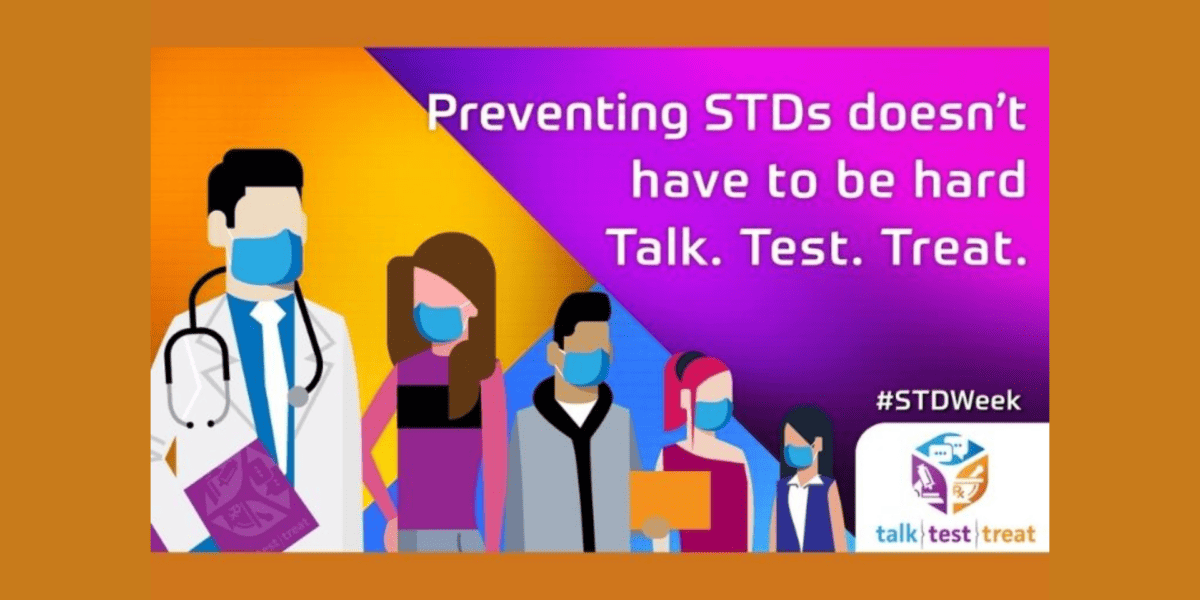
Lifelong Conversations about Sexual Health
Teen Health Week is April 4-10, 2022, and STD Awareness Week is April 10-16, 2022, both of which provide an opportunity for healthcare professionals to begin lifelong conversations with patients about sexual health and the importance of staying up to date on all recommended vaccines …
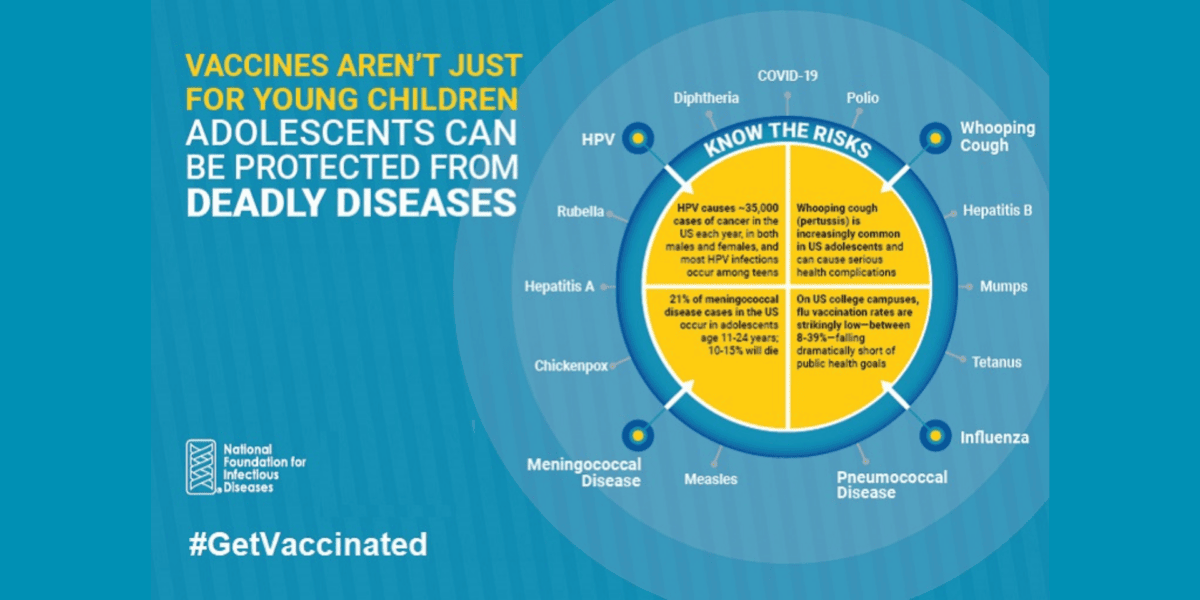
Vaccines Are Not Just for Young Children
CDC recommends vaccinations from birth to adulthood to provide a lifetime of protection. Yet many adolescents are not vaccinated as recommended, leaving them unnecessarily vulnerable. International Adolescent Health Week (March 20-26, 2022) is a perfect time to make sure that pre-teens and teens are up to date on all recommended vaccines …
